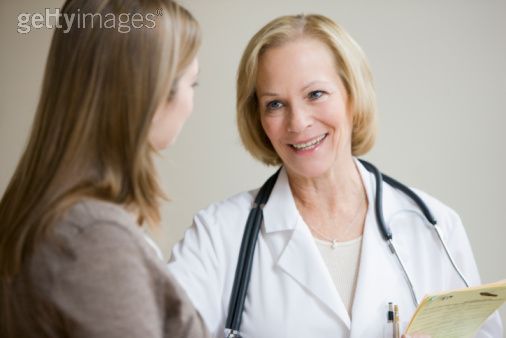
Patients who question medical test results or diagnoses from their doctors should be "unafraid" to ask for a second opinion, because mistakes, although uncommon, can be made, according to the Canadian Medical Association.
"There are things that fall through the cracks. There are outright errors," said CMA president Dr. Anne Doig on Wednesday. "But I don't want people to become distrustful about things that are said to them by their doctors. Yet if they are facing a momentous life decision about their health, there should be no question that a second opinion is an option available to them."
An Ontario woman found out last week she was mistakenly given a mastectomy even though she did not have breast cancer. The Hotel-Dieu Grace Hospital in Windsor, Ont., has admitted Dr. Barbara Heartwell misread the woman's biopsy results.
On Wednesday, Laurie Johnston, who had her healthy breast removed last November, named Heartwell, pathologist Dr. Olive Williams and two hospitals in a $2.2-million lawsuit.
A second woman, Janice Laporte of Sarnia, Ont., also had the same unnecessary procedure in 2001. She and Heartwell had previously reached an out-of-court settlement.
Both doctors have stopped working and a number of investigations have been initiated by the hospitals and the Ontario Ministry of Health to determine if any more patients were affected.
Doig would not comment on these particular cases, but said mistakes by health care providers can be made "in good faith."
"There are things that fall through the cracks," she said. "We've all got to realize that information presented in good faith can end up as information that is proven to be incorrect."
Wait times for a second opinion from another specialist can vary, depending on the severity of the illness and where they live in the country. Doig said it's up to doctors to be "transparent" with each other to speed up this process.
Not speaking up resulted in a hard lesson for Judy Janes, 60, who learned she was misdiagnosed with breast cancer nine years ago. The Boswarlos, N.L., woman had her breast removed in December 2001 and underwent three months of intensive chemotherapy causing her hair to fall out and become gravely sick.
Then, in 2006, Eastern Health, the province's only cancer-testing facility told her the test results were wrong and she had been given the wrong treatment. Janes said she still regrets not initially questioning her test results.
"The thought did not even cross my mind. When they told me I had cancer, everything went out the window," said Janes. "I know now you have to question everything. I don't care if I'm going in to get my toenail looked at. Back then I was a lamb led to the slaughter. I thought, they were the health care providers, they were the specialists."
A judicial inquiry has since revealed that hundreds of test results done at an Eastern Health pathology lab between 1997 and 2005 were incorrect. A $17.5-million settlement for the victims was recently approved by the Supreme Court.
"Sometimes patients don't know where to turn," said Dianne Carmichael, president of Best Doctors Canada, an international company that re-tests medical results.
"As Canadians we assume doctors know the best people and where to send us. That's not always the case."
According to Carmichael, initial diagnoses worldwide are incorrect 22 per cent of the time. She said that rate can be as high as 50 per cent for some cancers. The Canadian Medical Association and Statistics Canada were unable to confirm these statistics.
"Misdiagnoses aren't a Canadian-only issue," said Carmichael. "Physicians are relying on a host of experts to get it right. In an overburdened system, there's going to be errors. We're not pointing fingers but everyone deserves a second opinion."
